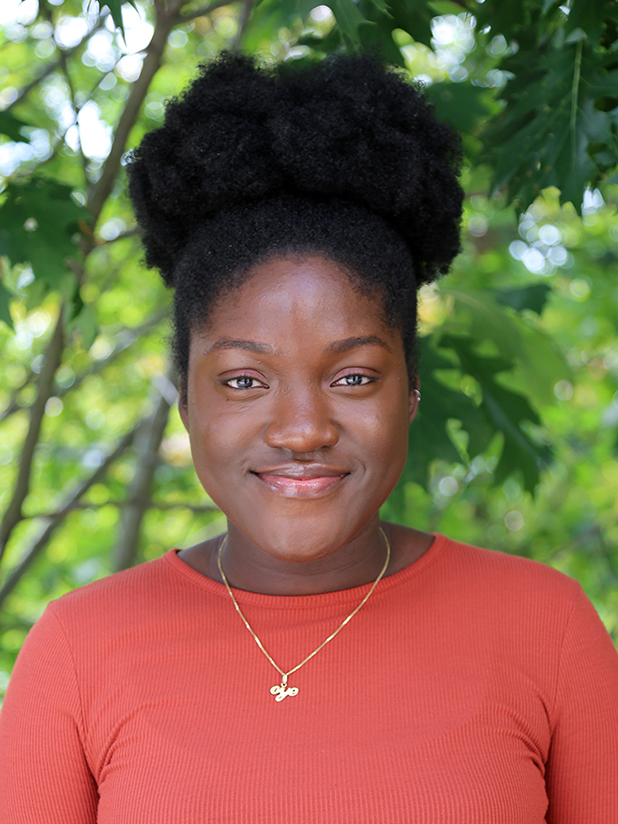Maamie Oye Appiah, MA SID/MS GHPM’24, has for years researched how environmental issues impact public health. At Heller, she aims to build on those skills to help marginalized populations around the world.
Appiah, who is originally from Accra, Ghana, received her bachelor’s degree from Lawrence University, where she pursued environmental studies with concentrations in chemistry and government.
While researching water access in rural areas, she traveled to Sierra Leone to study how a lack of water was affecting the education and wellbeing of teenage girls. She says the mismanagement of resources, combined with the effects of climate change, had a detrimental impact on the community during the Ebola outbreak of 2016 when clean water was especially scarce.
“As someone studying public health at the time, it was one of the most impactful moments in my career,” she says.
After graduation, Appiah moved to Washington, D.C., where she worked at a global health consulting organization and later shifted to a data management and business development role. She currently works for ACDI/VOCA, which aims to address issues of food security, economic prosperity, and social inclusion.
When researching graduate schools, Appiah looked for a program that would allow her to focus on both environmental issues and public health. She says Heller appealed to her because she could study everything she wanted.
“When applying to schools, very few graduate programs allowed me to have that intersection of sustainable development and global health,” she says. “I wanted to be a specialist in both things.”
Appiah is enrolled in both the Master of Arts in Sustainable International Development and Master of Science in Global Health Policy and Management programs. She enjoys working with data, and intends to select the Health Economics and Analytics STEM concentration for the MS program.
“I’ve always enjoyed learning about health systems as a whole, but moving forward, I think building on the skills I’ve learned will allow me to use data to inform policies for marginalized communities,” she says.
Appiah also appreciates the international community she found at Heller. The small class sizes are another benefit, allowing students to connect and learn more from each others’ experiences.
“When I looked at Heller, I noticed that they were very focused on recruiting people from different countries for international development, global health, and coexistence and all these things that are key to development,” she says. “This is important because they teach the people who should be working to make changes in their communities.”
After graduation, she is considering a career in project implementation or starting her own consulting organization in Ghana. The more she learns, however, the more she discovers a whole new world of career possibilities in global health and development.

